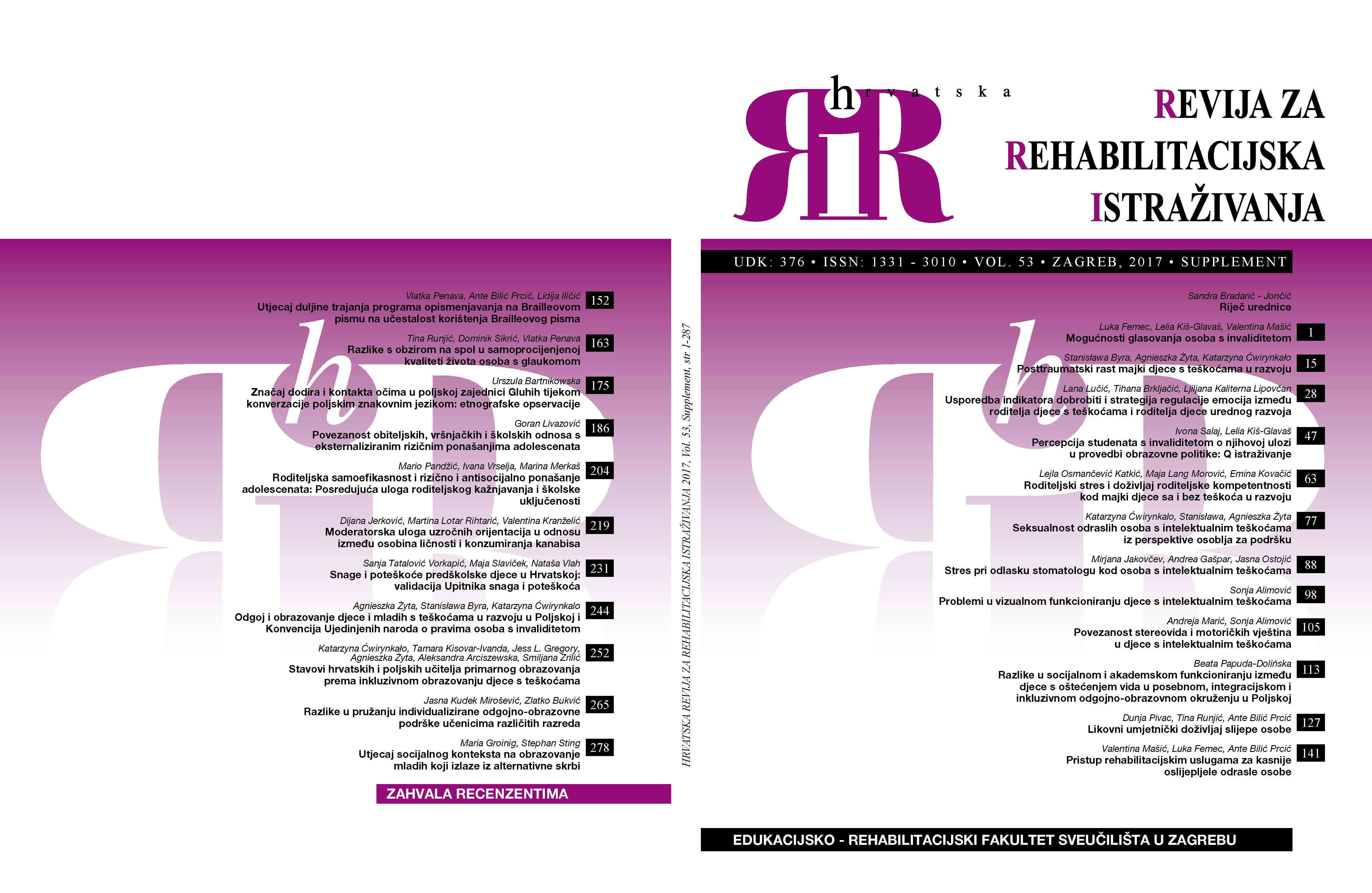Roditeljska samoefikasnost i rizično i antisocijalno ponašanje adolescenata: posredujuća uloga roditeljskog kažanjavanja i školske uključenosti
Parental self-efficacy and adolescent risky and antisocial behaviour: The mediating role of parental punishment and school engagement
Author(s): Mario Pandžić, Ivana Vrselja, Marina MerkašSubject(s): Social Sciences, Education, Psychology
Published by: Sveučilište u Zagrebu, Edukacijsko-rehabilitacijski fakultet
Keywords: parental self-efficacy; parental punishment; school engagement; risky and antisocial behaviour;
Summary/Abstract: The aim of this study was to examine direct effects of parental self-efficacy on adolescents’ risky and antisocial behaviour as well as serial indirect effects through parental punishment and adolescents’ school engagement. Data used in the paper were collected in a two-wave longitudinal study conducted within the research project "Parents’ work, family economic hardship, and well-being of parents and children". In this paper, data collected from 193 adolescents (120 girls) and their parents were used. Adolescents completed the Self-Reported Risky and Antisocial Behaviour Scale (Vrselja et al., 2009), the School Engagement Measure (Fredricks et al., 2005), and the Punishment Subscale of the Parenting Behaviour Questionnaire (Keresteš et al., 2012). Mothers and fathers completed the Parental Self-Efficacy Subscale of the Parental Competence Scale (Keresteš et al., 2011). Process macro (Hayes, 2013) for SPSS was used to test the proposed direct and indirect effects. The results showed that paternal, unlike maternal, self-efficacy had a direct effect on adolescents’ risky and antisocial behaviour. Lower self-efficacy in fathers contributed positively to more pronounced risky and antisocial behaviour in adolescents. Further, maternal self-efficacy had an indirect effect on adolescents’ risky and antisocial behaviour through the maternal use of harsh punishment and lower adolescents’ behavioural school engagement. There were no significant indirect effects of maternal or paternal self efficacy on adolescents’ risky and antisocial behaviour in models with emotional and cognitive school engagement as mediators. The findings of the study point to different mechanisms by which maternal and paternal self-efficacy and adolescents’ school engagement contribute to adolescents’ risky and antisocial behaviour.
Journal: Hrvatska revija za rehabilitacijska istraživanja
- Issue Year: 53/2017
- Issue No: Supp.
- Page Range: 204-218
- Page Count: 14
- Language: English

